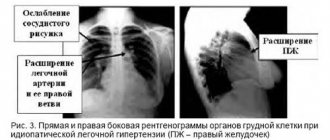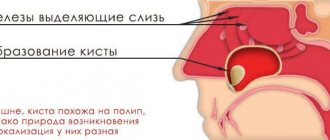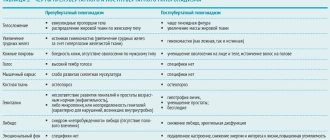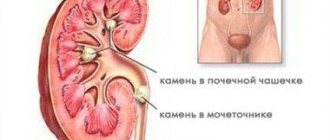Heart attack symptoms are characteristic signs that indicate the development of myocardial infarction. Every year, tens of thousands of people die as a result of a heart attack, and this condition also leads to disability. You can prevent dangerous consequences if you seek medical help in the early stages of a heart attack—immediately after the symptoms of a heart attack appear. In this case, the patient will be helped by emergency cardiology, which specializes in treating patients with suspected heart attacks.
Why is it useful to know about the symptoms of a heart attack?
It is important for patients suffering from diseases of the cardiovascular system and their loved ones to know about the symptoms of heart attacks, because heart attacks occur in people who felt absolutely healthy just yesterday. The risk group includes older and elderly people, patients with coronary heart disease. Risk factors include smoking and lack of physical activity, and a genetic predisposition to heart and vascular diseases. Atherosclerosis of the heart vessels often leads to heart attacks. This is a disease in which cholesterol plaques form in the coronary arteries. Arterial blood does not fully flow to the heart when the vessels are narrowed and the vascular lumen is blocked. Read more about the main causes of heart attacks here.
Even with a favorable outcome, when the patient’s life was saved, there is a risk that he will have to face various complications. For example, after a heart attack, arrhythmia occurs and a pacemaker is required. It is important to know what signs indicate a heart attack, because timely assistance helps prevent irreparable consequences.
Causes of heart pain
Pain is a defensive reaction: this signal is the first to draw attention to changes in the functioning of organs.
A painful sensation in the heart area (cardialgia) may signal one of the dangerous diseases of the heart or blood vessels that participate in its blood supply. Sometimes pain that appears to be heart pain is actually caused by other illnesses. The reason for this phenomenon is the location of the structures of the peripheral nervous system, the irritation of which causes pain. Chest pain can be associated with the spine, intercostal nerves, esophagus and even the skin.
Cardialgia can be imitated by:
- Diseases of the musculoskeletal system: osteochondrosis of the thoracic spine, pain in the intercostal muscles.
- Pathologies of the nervous system: inflammation of the intercostal nerves, non-inflammatory intercostal neuralgia, panic attacks; vegetative-vascular dystonia, psychosomatics (pain that occurs due to psychological reasons without objective disturbances in the functioning of organs).
- Vascular pathologies: aortic aneurysm (thinning and dissection of the vessel wall), pulmonary embolism (PE) - blockage of a vessel with a blood clot.
- Diseases of the gastrointestinal tract: pathologies of the esophagus, gastritis, stomach ulcers, pancreatitis and other diseases of the pancreas, diseases of the gallbladder.
- Respiratory dysfunction: pneumonia (inflammation of the lungs), pleurisy (inflammation of the film of connective tissue that covers the lungs and chest from the inside), bronchial asthma, pneumothorax (penetration of air into the cavity where the lungs are located), tuberculosis and other pulmonary diseases.
- Pathological manifestations on the skin: herpes zoster (infection with the herpes virus in the form of a blistering rash).
Also, pain in the heart area can be a manifestation of the action of toxins - some narcotic substances and aggressive chemicals.
However, heart disease is suspected in every case of chest pain: first of all, it is necessary to exclude myocardial infarction, unstable angina, pulmonary embolism and other life-threatening heart diseases.
Risk factors for heart pain
First of all, it is important to assess the likelihood of cardiovascular disease: if it is high, any discomfort in the patient’s heart area may be a sign of acute pathology.
Risk factors for cardialgia can be divided into uncontrolled (which cannot be corrected) and controlled (lifestyle features, nutrition, medication, treatment of concomitant diseases).
Uncontrollable risk factors include:
- age over 55 years;
- male gender;
- genetic predisposition;
- racial characteristics.
Acquired risk factors most often arise due to non-compliance with the principles of a healthy lifestyle. Poor nutrition, lack of physical activity, smoking, emotional reactions to stress, alcohol abuse and other bad habits significantly increase the risk of cardiovascular disease.
Also controllable risk factors may be associated with concomitant diseases and borderline conditions. These include:
- overweight and obesity;
- high blood pressure;
- diabetes mellitus and prediabetes;
- imbalance of blood lipids.
On the other hand, there are positive factors that prevent the development of cardiovascular diseases (Fig. 1).
Figure 1. Factors that influence the development of cardiovascular diseases Source: MedPortal
Chest pain in children
Acquired heart pathologies in childhood are a rare situation. Pain in the heart area in children is most often associated with congenital conditions or diseases that are not related to the cardiovascular system:
- congenital heart defects;
- diseases of the gastrointestinal tract;
- neuralgia;
- inflammatory processes in the lungs;
- chest injuries.
Young children cannot indicate the specific point where the heart hurts or describe their sensations. Therefore, parents should be extremely careful to recognize alarming symptoms in time and consult a doctor.
Heart pain during pregnancy
Cardialgia during pregnancy is not always associated with cardiac disorders. Most often, discomfort in the chest of the expectant mother is associated with adaptation: the vessels of the unborn child are built into the woman’s circulatory system, and the heart needs to “rebuild” to perform its functions in new conditions.
Also, the cause of heart pain during pregnancy can be:
- anemia,
- toxicosis and gestosis - severe pregnancy,
- intercostal neuralgia,
- disturbances in the reactions of the nervous system,
- cardiomyopathy.
Heart pain can seriously frighten a pregnant woman. But don’t panic: in such a situation, it is important to remain calm and go to the hospital immediately.
Warning signs of a heart attack
An early warning of myocardial infarction is repeated chest pain that occurs during exercise and goes away with rest (angina pectoris). Angina occurs as a result of a temporary decrease in blood supply to the heart in conditions of increased oxygen demand. We talked in detail about the characteristic symptoms of angina here.
People confuse the concept of a heart attack with a condition in which the heart suddenly stops (sudden cardiac arrest). Sudden cardiac death occurs as a result of electrical dysfunction in the heart, impairing pumping function and leading to cessation of circulation throughout the body. Myocardial infarction is a common, but not the only, cause of cardiac arrest.
What is the difference between angina and myocardial infarction?
Most heart attack victims do not notice the warning signs of impending danger, which manifest themselves in the form of angina pectoris - chest pain, which is also caused by ischemia. The difference between angina and a heart attack is that with angina, blood flow is quickly restored, the pain goes away within minutes, and there is no permanent damage to the heart. During a heart attack, the blood flow is significantly reduced or completely blocked, the pain is constant, and without proper medical intervention, the heart muscle dies.
About 25% of all heart attacks occur suddenly, i.e. without previous symptoms. Sometimes they are associated with a phenomenon called “silent” ischemia - random interruptions in blood flow to the heart, which for unknown reasons are not accompanied by pain, although they can lead to damage to heart tissue. Silent ischemia is often observed in diabetic patients.
First aid
If you have a heart attack, act immediately. Many people wait too long because they do not recognize warning signs. Take the following steps:
- Call an ambulance. If you suspect a myocardial infarction, do not hesitate to call. Immediately dial 03, 911 or 112. If you do not have access to a telephone, find someone who can take you to the nearest medical facility or heart center. If you drive in this condition, you are putting yourself and others at serious risk.
- Take nitroglycerin if you have been prescribed it. If your doctor prescribed nitroglycerin, take it as directed while you wait for emergency personnel to arrive.
- Take aspirin if it is recommended for you. If you are concerned about your risk of heart attack, ask your cardiologist if you can chew an aspirin tablet. Taking aspirin during a developing heart attack will help reduce damage to the heart by reducing blood clots.
Receiving Prescriptions
If you have a myocardial infarction, it is usually diagnosed by emergency physicians, or less often when visiting a doctor. After a heart attack, it is recommended to take care of yourself and be attentive to your health: early post-infarction angina leads to repeated heart attacks.
If you are interested in reducing your risk of heart attack, talk to your cardiologist about risk factors and ways to prevent heart attacks.
Since doctor's orders can be laconic and not always clear, it is a good idea to prepare for a consultation with a cardiologist. Below is information to help you prepare for your doctor's orders.
How to prepare for a doctor's appointment?
- Write down any symptoms you experience, including those that do not seem like symptoms associated with heart disease.
- Write down personal information that includes a family history of vascular or heart disease, stroke, high blood pressure, or diabetes; stressful situations or changes in lifestyle.
- Make a list of all medications, including vitamins and supplements, that you take.
- Ask your family or friends if they remember any information that would indicate heart disease.
- Be prepared to discuss your diet and lifestyle. If you are not following a diet or exercising regularly, be prepared to receive instructions from your doctor about lifestyle changes you should make during treatment.
- Write down questions you want to ask the doctor.
Your appointment time with your doctor is limited, so try to come up with a list of questions that can help you have an effective consultation. Here is a sample list of questions:
- What causes these symptoms and condition?
- What treatment is indicated for me?
- What foods should I eat and what should I avoid?
- What is the acceptable level of physical activity for me?
- How often should I check my cholesterol and have a cardiac screening?
- If I have other health problems, how can I treat them together?
- Are there any restrictions?
- Should I consult other specialists?
- Are there alternative drugs to the drugs that were prescribed to me?
- Are there any brochures or other self-study materials available? What websites do you recommend?
Treatment of heart pain
Pain is a symptom and therefore cannot be treated in itself. The method of therapy is selected only after determining the cause of pain.
Treatment begins with lifestyle changes: it is important to include all recommended ways to prevent heart disease in your list of daily activities.
Diet plays an important role: fried and fatty foods and sweets are excluded from the diet. The daily menu should contain a sufficient amount of fresh vegetables and fruits and fiber.
The patient is also offered to add physical activity to his daily routine - the duration and types of exercise are determined individually, depending on the identified disease.
Drugs for the treatment of heart disease are prescribed in a course or for long-term use. It is important to control blood pressure: for hypertension, medications must be taken daily, following the doctor's recommendations.
What to expect from the doctor?
The doctor will ask questions - be prepared to answer them. When you see a cardiologist, you will be asked:
- When did you first experience symptoms that seemed suspicious for heart disease, such as chest pain (angina) or shortness of breath?
- Are the symptoms continuous or sudden?
- How severe are your symptoms?
- What helps resolve these symptoms? If you experience chest pain, does it go away with rest?
- What worsens or triggers symptoms? If chest pain occurs, does physical activity make it stronger and help it continue?
- Has there been a history of heart disease in your family?
- Have you been diagnosed with high blood pressure, high cholesterol or diabetes?
Age characteristics
The onset of heart failure in women is usually noted at the age of 50 years and older. This can be explained by the fact that until the age of forty they have a kind of protection provided by female sex hormones - estrogens. With the onset of menopause, their production gradually stops, immunity decreases, and the heart muscle weakens.
Childbirth becomes especially risky after the age of forty. During this age period, a woman’s body begins hormonal changes in preparation for menopause, which already increases the load on the heart.
In addition, bearing and giving birth to a child is a very difficult test, and it also does not help strengthen the heart muscle. Late motherhood can provoke a lot of complications: arterial hypertension, diabetes, pyelonephritis. All this is a good background for the development of heart failure in women.










